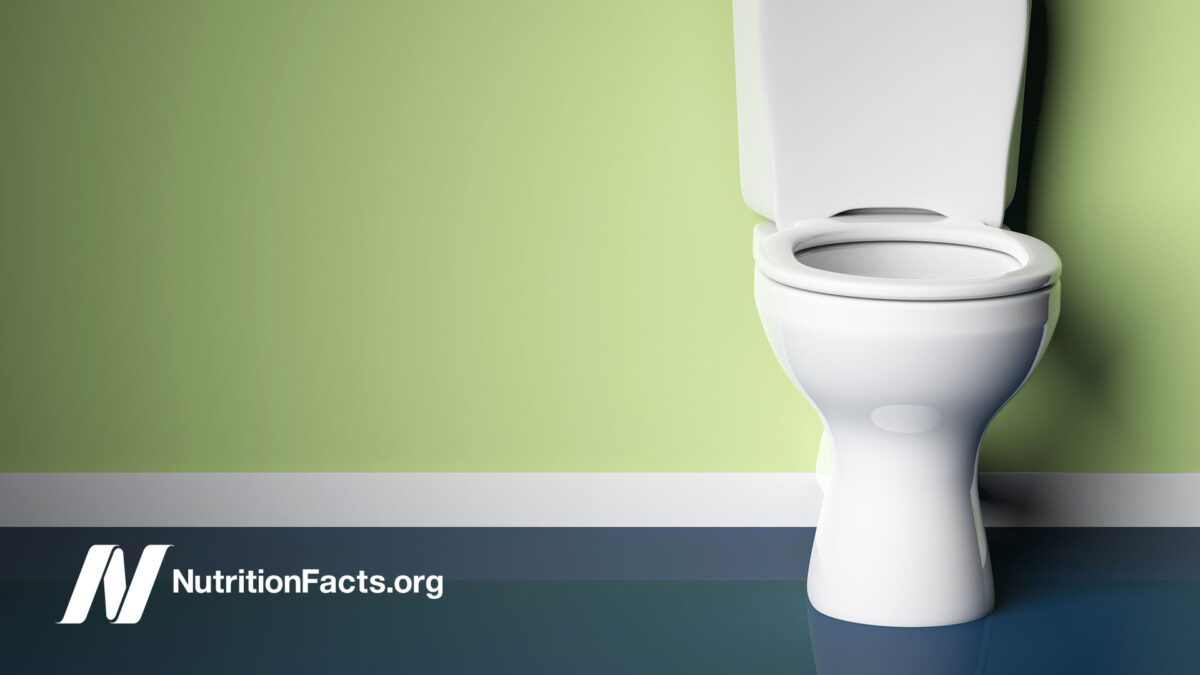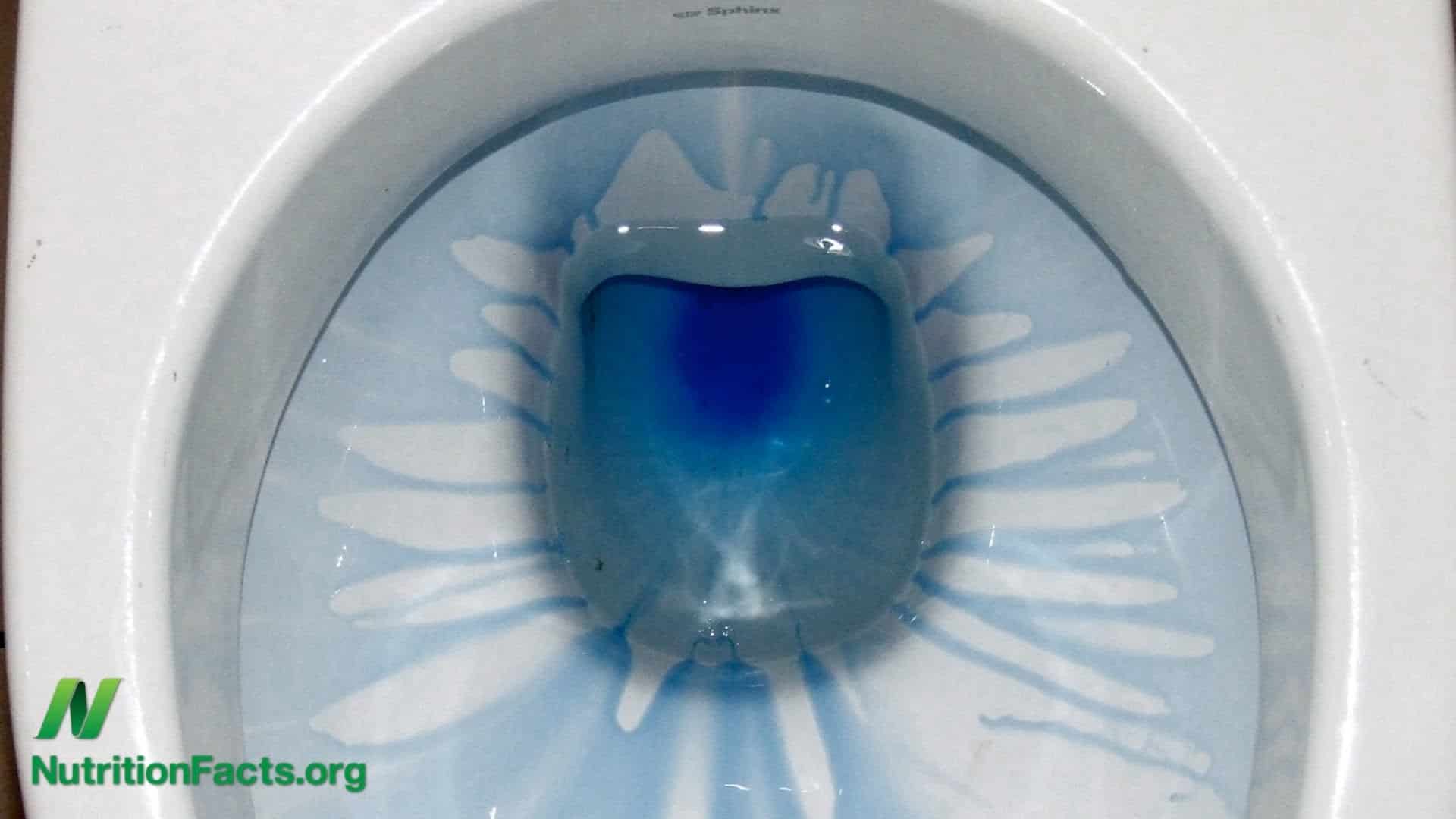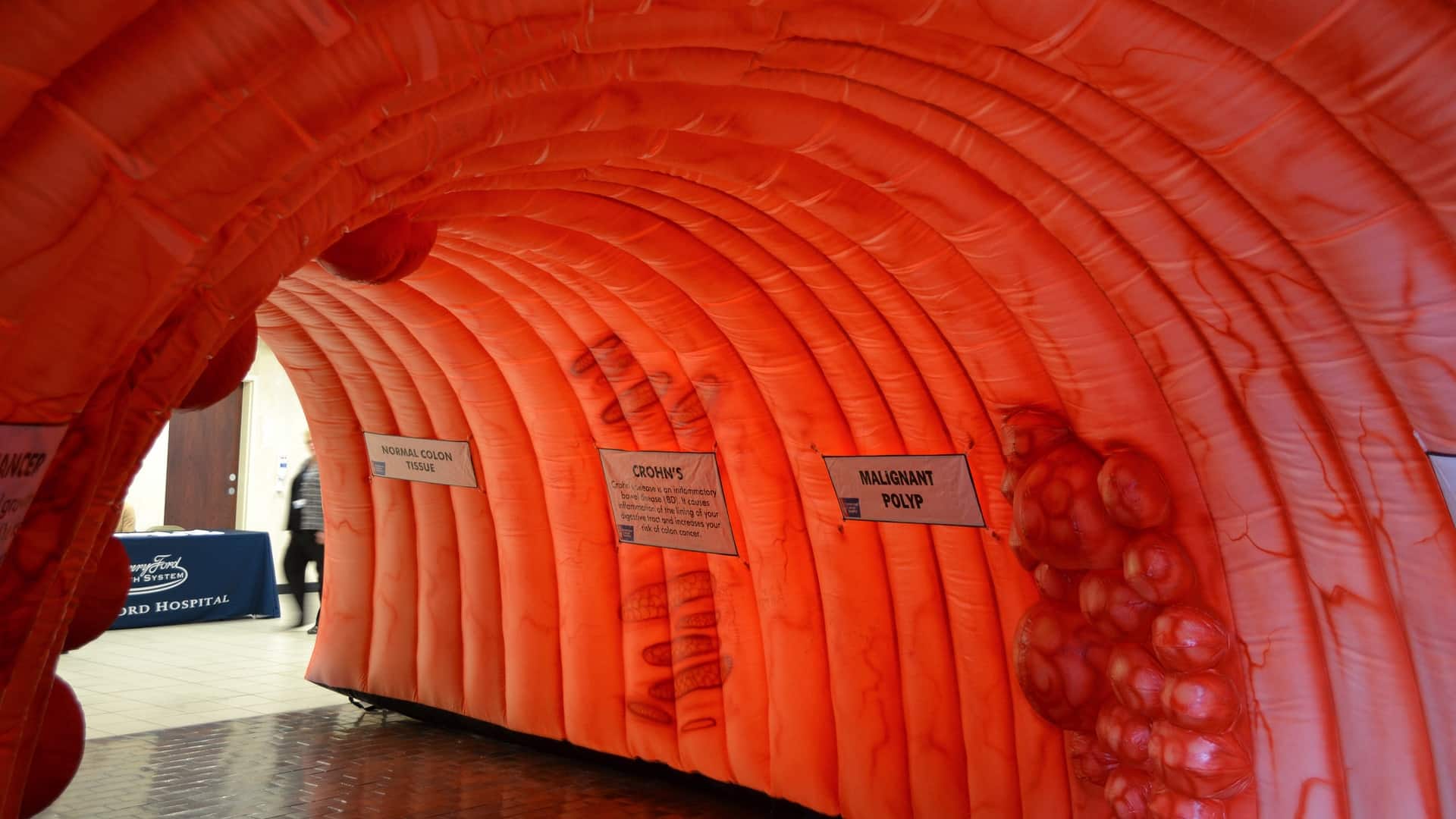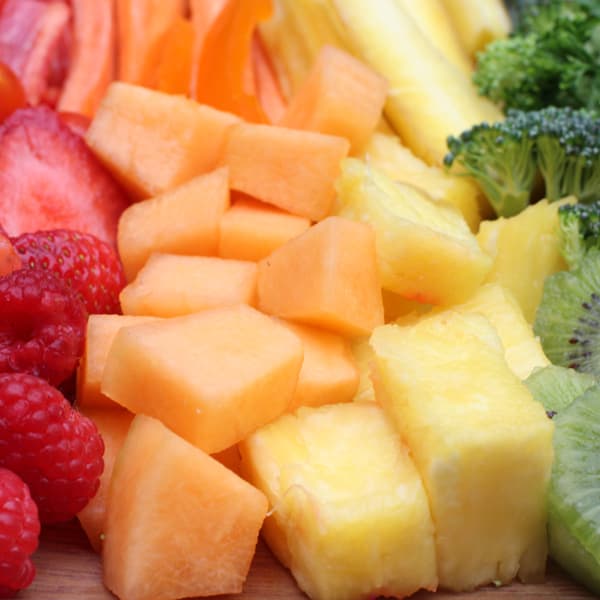
Stool Size
Topic summary contributed by volunteer(s): Lindey and Dianne
Learn more about the latest research on stool size in the videos below.
The bigger our bowel movements, the healthier we may be. Low stool weight appears to lower our colon health and may increase the risk of colon cancer, diverticulitis, appendicitis, and constipation. The target minimum fecal output is 200 grams or about a half pound a day.
The link between stool size and colon disease may be related to transit time. The larger our stool, the quicker the transit time, and the easier it is for our intestines to move things along. For vegetarians, it should take between 24 to 36 hours to reach the half-pound target. Those on the standard American diet, however, may be looking at a four to five-day transit time.
Populations who eat high-fiber diets have been shown to have low rates of diverticulosis. More than 50% of African-Americans in their 50s were found to have diverticulosis, compared to less than 1% of Africans eating traditional plant-based diets.
The high antioxidants and fiber in fruit and vegetables seem to alter the gut flora and have been shown to double stool size. Probiotics might also be helpful in increasing stool size while at the same time lowering depression.
For substantiation of any statements of fact from the peer-reviewed medical literature, please see the associated videos below.
Popular Videos for Stool Size


How Many Bowel Movements Should You Have Every Day?
Most people have between 3 bowel movements a day and 3 a week, but normal...
Bulking Up on Antioxidants
Even when fiber and fruit and vegetable intake are kept constant, choosing foods richer in...
Stool pH & Colon Cancer
Fermentation of fiber in the gut may help explain the dramatic differences in colorectal cancer...All Videos for Stool Size
-

Getting Starch to Take the Path of Most Resistance
How might beans, berries, and intact (not just whole) grains reduce colon cancer risk?
-

Diverticulosis: When Our Most Common Gut Disorder Hardly Existed
More than two-thirds of Americans over age 60 have diverticulosis, but it was nearly unknown a century ago, and remained extremely rare among populations eating whole food plant-based diets.
-

Should You Sit, Squat, or Lean During a Bowel Movement?
Squatting and leaning can help straighten the anorectal angle, but a healthy enough diet should make bowel movements effortless regardless of positioning.
-

How Many Bowel Movements Should You Have Every Day?
Most people have between 3 bowel movements a day and 3 a week, but normal doesn’t necessarily mean optimal.
-

Diet and Hiatal Hernia
Straining at stool over time may force part of the stomach up into the chest, contributing to GERD acid reflux disease. This may explain why hiatal hernia is extremely rare among populations eating high-fiber diets.
-

How Much Fruit Is Too Much?
Does the threshold for toxicity of fructose apply to fruit or just to added industrial sugars such as sucrose and high fructose corn syrup?
-

Juicing Removes More than Just Fiber
The majority of polyphenol phytonutrients may be bound to fiber, helping to explain the marked difference in health impacts between whole fruit and fruit juice.
-

Dr. Burkitt’s F-Word Diet
The famous surgeon Denis Burkitt suggests an explanation for why many of our most common and deadliest diseases were rare or even nonexistent in populations eating plant-based diets.
-

One in a Thousand: Ending the Heart Disease Epidemic
Many of our most common diseases found to be rare, or even nonexistent, among populations eating plant-based diets.
-

Gut Feelings: Probiotics & Mental Health
We’ve known our mental state can affect our gut flora, but might our good bacteria be affecting our mental state?
-

Prunes vs. Metamucil vs. Vegan Diet
The average number of bowel movements a week is compared between those eating prunes, those taking a fiber supplement, and those eating a strictly plant-based diet.
-

Bulking Up on Antioxidants
Even when fiber and fruit and vegetable intake are kept constant, choosing foods richer in antioxidants may increase stool size, which is associated with lower cancer risk.
-

Bowels of the Earth
Which country has the largest (and smallest) average stool size?
-

Food Mass Transit
Most women experience a four-day intestine transit time; likely too long to meet the target 200 gram (half pound) minimum fecal output for cancer prevention.
-

Stool Size Matters
Larger bowel movements are associated with lower risk of appendicitis, colon cancer, constipation, and diverticulitis.
